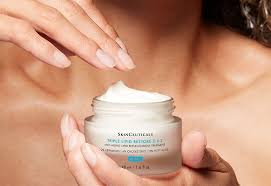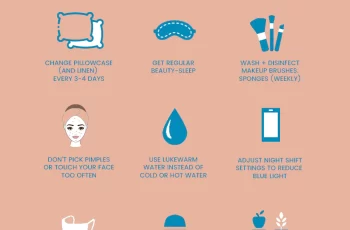
What Are Peptides? Your Ultimate Introduction to Peptides for Skin Care
In the ever-evolving world of skincare, few buzzwords have gained as much attention as peptides.
Sometimes hailed as the “miracle ingredient” or even “Botox in a bottle,” peptides have captured the imagination of beauty enthusiasts and skincare professionals alike.
However, despite their popularity, many people still find the science and benefits of peptides a bit confusing or unclear.
If you’ve been curious about what peptides really are and how they can improve your skin, you’re in the right place.
Let’s dive deep and explore the fascinating world of peptides, what they do, and how to incorporate them into your skincare routine.
What Exactly Are Peptides in Skincare?
Ready for a little science? Don’t worry — we’ll keep it straightforward. Peptides are small chains of amino acids, the building blocks of proteins.
When these chains link together, they form polypeptides or proteins. Think of peptides as tiny fragments or “pieces” of proteins that can send important signals to your skin.
In skincare, peptides are particularly prized because they can communicate with your skin cells, especially the ones responsible for producing collagen—the protein that gives skin its firmness, elasticity, and youthful appearance.
When applied topically, peptides can penetrate the upper layers of the skin and send messages that encourage collagen production, helping to rejuvenate your complexion from within.
What makes peptides especially clever is their size:
Since they are smaller fragments of proteins, peptides can penetrate deeper into the skin compared to full proteins, which are too large to pass through the skin barrier effectively.
Once inside, they “trick” the skin into thinking it needs to ramp up its repair mechanisms, boosting collagen and elastin synthesis to promote a smoother, firmer, more youthful-looking face.
What Do Peptides Do for Your Skin?
Peptides are often incorporated into professional skin treatments, especially after procedures like microneedling or laser therapy, where the skin’s permeability is increased.
This allows peptides to penetrate more deeply, supporting faster healing and recovery.
However, peptides also provide multiple everyday benefits, and while there are many theories and studies about their exact mechanisms, most experts agree that peptides fall into three broad categories, each playing a different role:
Signal peptides: These stimulate the production of collagen and other proteins that support skin structure.
Carrier peptides: These deliver trace elements (like copper) needed for wound healing and enzymatic processes.
Neurotransmitter-inhibiting peptides: These reduce muscle contractions that cause expression lines, similar in effect to Botox.
Now, what does this mean for your skin? Here are the major benefits peptides can bring to your skincare routine:
1. Strengthening the Skin Barrier
Our skin is constantly exposed to damaging environmental factors such as UV rays, pollution, and harsh weather conditions.
Peptides help increase the number of skin cells and enhance the skin’s natural barrier.
A stronger barrier means your skin is better protected from irritants and dehydration, reducing sensitivity and improving overall skin health.
2. Reducing the Appearance of Fine Lines and Wrinkles
Because peptides encourage collagen production, they help replenish the skin’s structural proteins that diminish with age.
This boost results in a plumper, firmer complexion, softening fine lines and wrinkles over time. In other words, peptides help give your skin that all-over youthful glow.
3. Anti-Inflammatory and Soothing Effects
Many peptides have antioxidant properties that help calm irritated skin, reducing redness and inflammation.
This makes peptides beneficial for those with sensitive skin or conditions like rosacea, where calming inflammation is crucial.
4. Improving Skin Firmness and Elasticity
Some peptides work by inhibiting nerve signals that cause muscle contractions, smoothing out expression lines and restoring skin’s natural elasticity.
This action can help “turn back the clock,” providing firmer, more resilient skin.
5. Locking in Hydration
Aging skin often struggles to retain moisture, leading to dryness, dullness, and faster formation of wrinkles.
Peptides help your skin hold onto water and maintain hydration levels, resulting in a bouncy, dewy complexion.
6. Smoothing Complexion and Enhancing Texture
With regular use, peptides can improve skin texture by promoting collagen production and healthy cell turnover.
This can lead to a more even skin tone and reduction of rough patches, giving you a smoother, more radiant appearance.
Are Peptides Powerful Enough to Work Alone?
While peptides offer impressive benefits, skincare professionals often recommend using them in combination with other potent ingredients for best results.
This is because peptides alone may not be sufficient to address all signs of aging or skin concerns comprehensively.
Many effective skincare products combine peptides with antioxidants (like vitamin C), retinoids, or hydrators (such as hyaluronic acid), creating a “cocktail” of active ingredients that work synergistically to rejuvenate the skin.
This multi-targeted approach can deliver noticeable improvements in firmness, hydration, brightness, and overall skin health.
How to Introduce Peptides into Your Skincare Routine
Peptides are found in a variety of skincare products — from cleansers and toners to serums and moisturizers.
However, if you want to maximize their benefits, here are a few tips:
Choose serums and moisturizers: These formulations stay on the skin longer, allowing peptides to absorb and work effectively. Cleansers are less ideal since they rinse off quickly.
Check product labels: Look for products specifically formulated with peptides, and preferably ones that combine peptides with other beneficial ingredients.
Suitable for all skin types: Peptides are generally gentle and safe for sensitive skin, but if you’re unsure or have specific concerns, consult a dermatologist first.
Consistency is key: Like most skincare ingredients, peptides take time to show results. Regular application over weeks or months is necessary to see meaningful improvements.
Are There Any Side Effects of Using Peptides?
Peptides are considered very safe and typically do not cause irritation or adverse reactions.
However, one important consideration is how peptides interact with other active ingredients, especially Alpha Hydroxy Acids (AHAs) and Beta Hydroxy Acids (BHAs).
Since AHAs and BHAs exfoliate the skin chemically, they can break down peptides, reducing their effectiveness.
For this reason, it’s best to avoid using peptides and acids simultaneously in the same routine.
Instead, alternate them by applying acids in the morning and peptides in the evening, or use them on different days to allow each to perform optimally.
Final Thoughts on Peptides in Skincare
So there you have it — a thorough introduction to peptides and why they deserve a place in your skincare arsenal.
While the science continues to evolve and some debate remains about their potency, peptides have proven benefits that can support youthful, hydrated, and healthy skin.
They help repair the moisture barrier, reduce fine lines, soothe inflammation, and firm the skin — all without irritation.
If you’re on the lookout for a product that promises to improve signs of aging and deliver a radiant, firm complexion with minimal risk, peptides are definitely worth trying.
And hey, if it’s touted as “Botox in a bottle,” who wouldn’t want to give it a go? We’ll be sure to keep you posted on how our peptide experiments turn out!


